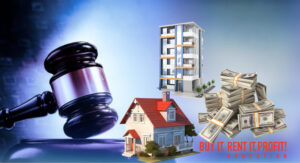Comprehensive Guide to HUD’s NSPIRE Program for Section 8 Landlords
Introduction: Understanding HUD’s NSPIRE Program
HUD’s NSPIRE (National Standards for the Physical Inspection of Real Estate) program is a groundbreaking approach to housing inspections, emphasizing health, safety, and functional standards over appearance. It aims to streamline the inspection process, establish clearer standards, and prioritize the well-being of residents in HUD-assisted housing. For Section 8 landlords, understanding and preparing for the NSPIRE program is crucial to ensuring compliance and maintaining high-quality housing for tenants.
1. What is NSPIRE?
- NSPIRE is HUD’s new housing inspection approach, designed to identify deficiencies impacting resident health and safety.
- It provides objective standards and protocols, simplifying the inspection process for both landlords and inspectors.
- The program aims to improve compliance and housing quality through rigorous collaboration with stakeholders.
2. Components of the NSPIRE Model
- Three types of inspections: Self-inspections, NSPIRE inspections, and NSPIRE Plus inspections, each serving specific purposes.
- Three categories of deficiencies: Health and safety, function and operability, and condition and appearance, with corresponding maintenance priorities.
- Three inspectable areas: Inside, Outside, and Unit, covering all aspects of a property’s physical condition.
3. NSPIRE Demonstration
- A multiyear demonstration launched in 2019 to refine NSPIRE standards and protocols.
- Involves diverse stakeholders, including REAC, PHAs, property owners, residents, and industry experts.
- Tests inspection standards, regulations, IT systems, and support services to ensure effective implementation.
4. NSPIRE Inspection Process
- Conducted by contract inspectors and PHAs every one to three years, focusing on key indicators of housing quality.
- Utilizes high unit sampling rates to provide reliable inspection results.
- Identifies deficiencies requiring corrective action within specific timeframes.
5. NSPIRE Plus Inspection
- Triggered by poor property conditions or requested by HUD offices, conducted by HUD.
- Provides the highest level of confidence in a property’s condition, supporting enforcement actions.
- Delivers evidence-based data to justify interventions and ensure compliance.
6. NSPIRE Standards
- Detailed inspection standards outlining criteria, correction timeframes, and inspection processes.
- Focuses on assessing HUD-assisted housing for compliance with health, safety, and functionality requirements.
- Provides clarity and consistency in inspection procedures and expectations.
7. Preparing for NSPIRE Inspections
- Familiarize yourself with NSPIRE standards and protocols through educational resources.
- Conduct self-inspections to identify and address potential deficiencies proactively.
- Collaborate with local Housing Authorities and industry organizations for guidance and support.
8. Utilizing Resources like Buy it Rent it PROFIT Education™️
- Access educational materials, tools, and systems to enhance your understanding of NSPIRE.
- Stay informed about program updates, training opportunities, and best practices for compliance.
- Leverage partnerships and networking opportunities to navigate NSPIRE requirements effectively.
9. Conclusion: Embracing the Future of Housing Inspection
As HUD’s NSPIRE program continues to evolve, Section 8 landlords play a vital role in ensuring the success of this transformative initiative. By preparing diligently, staying informed, and leveraging available resources, landlords can navigate the NSPIRE inspection process with confidence, ultimately contributing to safer, healthier housing for all residents.




